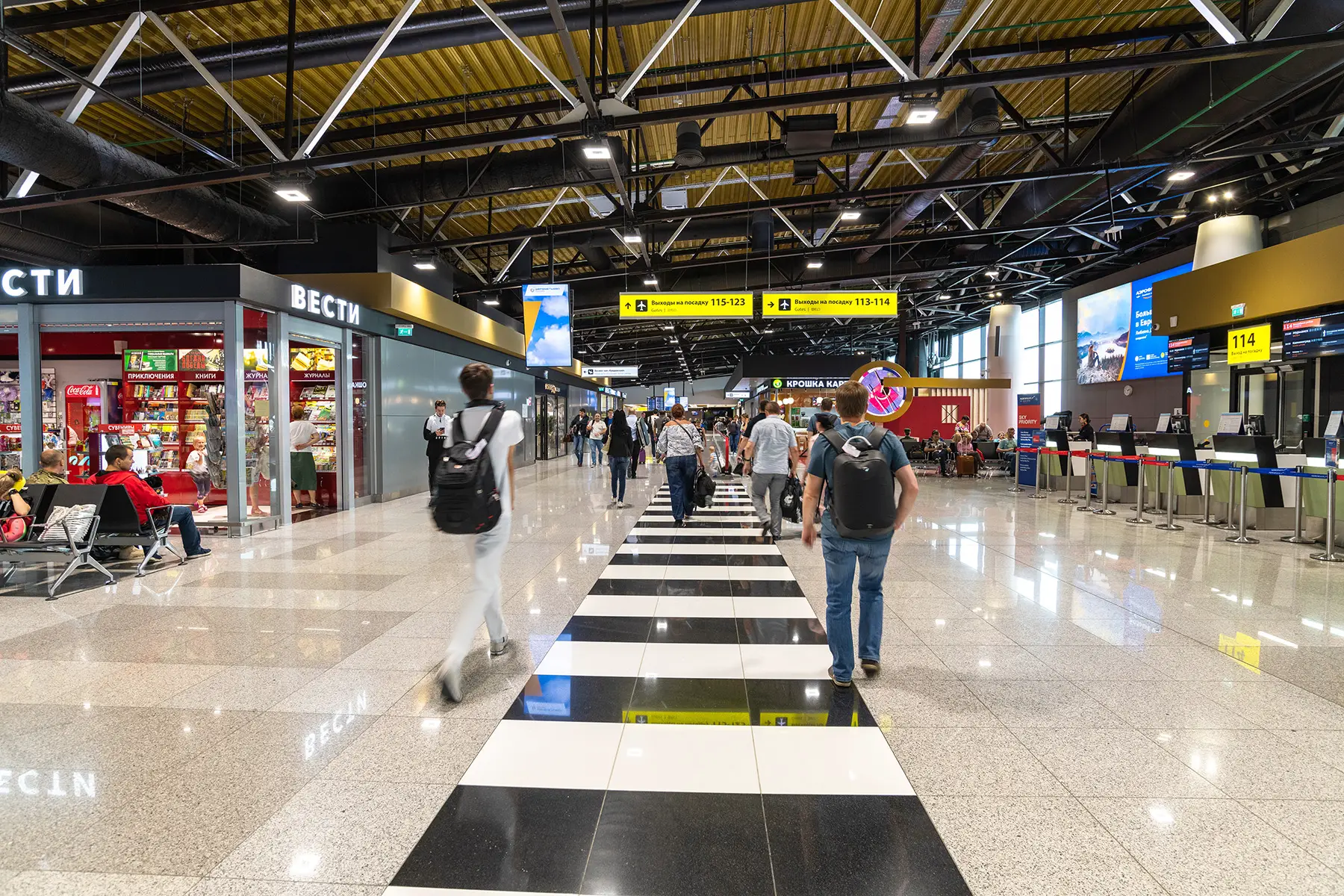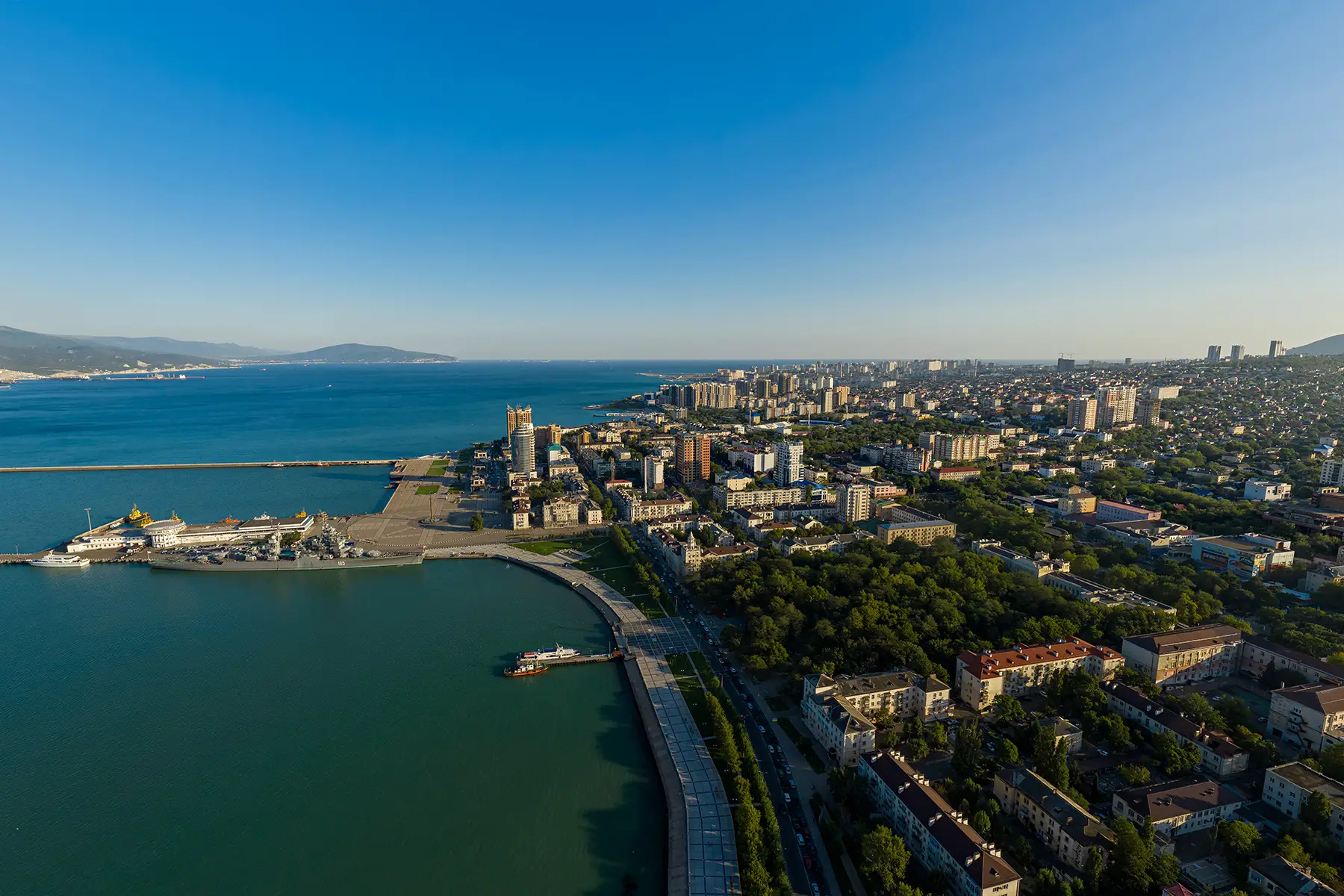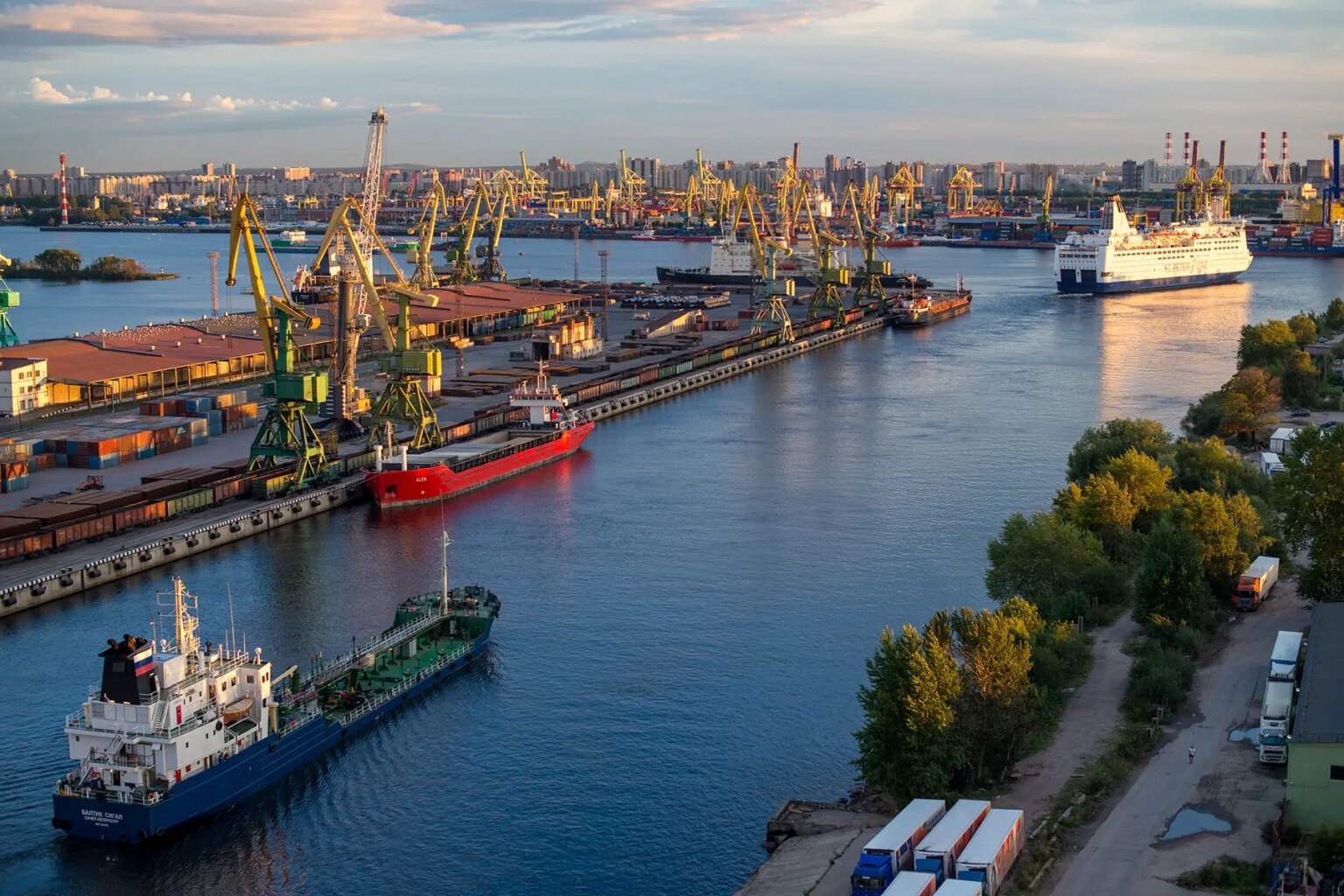Important notice from the Editor in Chief
Maintaining our Russian site is a delicate matter during the war. We have chosen to keep its content online to help our readers, but we cannot ensure that it is accurate and up to date. Our team endeavors to strike the right balance between giving information to those who need it, and respecting the gravity of the situation.
There’s a lot to plan when moving to Russia. Once you’ve decided whether to live in the bustle of Moscow, the ornate beauty of Saint Petersburg, or somewhere a little more remote, it’s time to organize your move. Although Russia is huge, there are plenty of ways to get your belongings from A to B.
We’ll explain your options for your relocation to Russia, including methods of transport, packing, and international removal companies. Read on to find out about:
The Relocator
Moving to Moscow? Setting up a new life in Novosibirsk? Wherever you're heading, take the stress out of your move to Russia by letting The Relocator find the right international shipping options for you. Compare a number of trusted international movers and get a free quote in minutes. Wherever Russian life takes you, get there with The Relocator.
Relocating to Russia from abroad
Moving to a new country can feel overwhelming. Along with finding a job and a place to live, an important thing to think about is how you’ll move your furniture and personal possessions. You might be wondering how to pack your items and which transport solution would work best. When comparing moving methods, you might prioritize cost and time, but there are other things to consider, such as customs forms and quarantines for pets.

One way of alleviating some of the stress is to hire an international relocation company. This mostly depends on how many items you have to move, how much time you have, and your budget. These companies are helpful if you don’t want to deal with the stress of heavy lifting and customs, but their services can be costly. One way to decide whether to choose a relocations company or go it alone is to use a comparison platform to assess your options.
Air freight options for relocation to Russia
Russia, the biggest country in the world, has plenty of airports. As most expats live in Moscow, it’s likely that if you ship by air to Russia, you’ll use one of its larger airports: Sheremetyevo (Шереметьево), Domodedovo (Домодедово), or Vnukovo (Внуково). Other airports in Russia include:
- Koltsovo (Кольцово) – Yekaterinburg
- Pulkovo Airport (Пулково) – Saint Petersburg
- Tolmachevo (Толмачево) – Novosibirsk
Who should use air freight?
Shipping by air is the quickest option for relocation to Russia, so if you’re short on time, it’s worth considering. However, costs can add up quickly, as it charges by weight. Indeed, this method works best if you only have a few light items to move or anything that needs to be with you urgently.
It’s also not the best option if you want to move as sustainably as possible. Air freight emits several times as much CO2 as sea freight for the same distance and weight.
How air freight works
When using air freight as a relocation option to Russia, the biggest concern is how much your belongings weigh. First, you need to assess what you’re moving and approach different shipping companies with this information. They will provide you with a quote for the weight required – if you use an international removals company, they might visit you in person or virtually to survey your items.

Once you have decided on a service, you’ll need to consider the paperwork involved. Bear in mind that some items may not be shipped by air. A delivery or removal company should tell you what paperwork is necessary and any customs charges. Then, either your belongings will be packed and unpacked by the company, or you will be able to handle this yourself once your items land in Moscow.
Air freight: transit times
The biggest bonus of shipping by air is its speed. Your possessions should reach you within a week or two of shipping, so it’s suitable for urgent, unmissable items. One way to make it even speedier is to pay for extra baggage and pick everything up with your suitcases at baggage reclaim. Bear in mind that restrictions and customs might apply.
Air freight costs
Unfortunately, speed comes with a price. A minimum shipping charge of around $150 often applies, and then your items are charged by weight. Prices start at about $1.50 per kilo and can reach $8 per kilo, depending on the route and demand.
Packing options
You have a few options when packing for air freight. First, it’s a good idea to choose a lightweight material where possible, as shipping costs can add up quickly. Another way to save money and waste is to pack in suitcases or containers that you will reuse at your destination.
If you are keen to make your move more eco-friendly, ask your removals company whether they have any sustainable packing options.
Finding an air freight company
Once you know the approximate weight of your belongings, you can decide whether to find an air shipping company or a global relocation service. When searching for a company, remember to think about not just price but timings and any additional costs and insurance. Most companies will be able to provide a rough quote based on the weight of your items, but another option is to use a comparison website.
Relocating to Russia with sea freight
If you’re on a budget and have a longer time frame for your move, shipping your belongings by sea might be the way to go. Russia has many ports, the busiest of which is Novorossiysk.
Other major ports in Russia include:
- Ust-Luga (Усть-Луга) – Baltic Sea
- Vostochny (Восточный) – Russian Far East
- St. Petersburg
Who should use freight?
Sea freight isn’t always the most convenient method of getting your items to Russia, but it’s undoubtedly one of the cheapest. It’s an excellent way to keep costs down if you’re moving from far away, especially compared to flying.

In addition, it’s a good bet for those who want to make their long-distance move more eco-friendly. Although your goods will almost definitely travel a long distance overland after shipping, it’s still better for the environment than air freight.
Container ships: how the process works
As with any cross-border move, you first need to assess which possessions to ship. Most companies calculate the price for sea freight according to size. Generally, you have two options for full container sizes – either 20-foot or 40-foot. The 20-foot container fits the contents of a two-bedroom or three-bedroom house, while the 40-foot one fits a larger, four- or five-bedroom home.
Alternatively, you can ship less than a container load (LCL). This is usually cheaper than hiring your own container, and it’s suitable for those with smaller homes or if you don’t have much to ship. However, it can take longer than shipping a full container, as you have to wait for other shipments to fill the space.
Freight shipping transit times
How long shipping takes depends on your distance from your nearest Russian port and current shipping demands. Here are some estimates of shipping times to the nearest Russian port from different countries:
- United States – 19–34 days
- Germany – 3–7 days
- United Kingdom – 9–11 days
- China – 7–14 days
Bear in mind that these timings only take into account shipping to the nearest Russian port. Unless you live next to a port, your items are likely to make a long overland journey to your new home. It’s also worth remembering that some Russian ports freeze in the winter, which can add to your shipping time.
Maritime freight costs
Shipping to Russia rather than using air freight will save you a lot of money. In addition, prices are worked out according to volume or container size, so it’s cost-effective for heavy furniture.

The cost of transporting your goods by sea depends on the route they take and levels of demand. In certain months, the price might be higher than others, so keep in touch with your shipping company to get an idea of how much you’ll spend. For example, the cost per cubic meter for ocean freight can range from $25–$140. This cost does not take into account any road transport that your items will take.
Packing options
When packing for your move to Russia, you need to ensure that your items are secure and can withstand choppy seas and moisture. In addition, your belongings might undergo a lot of handling during transfers, so make sure they are well-protected.
If you are shipping LCL, you will pack your goods onto pallets. While sustainable and biodegradable packaging options are available, it’s worth checking with your delivery service what’s most suitable. International removals companies generally insist on packing your items themselves.
Finding a sea freight company
Once you know whether you’re shipping a full container or LCL, you can start sourcing quotes from delivery companies. Either do this company by company or explore your options for relocation to Russia on comparison platforms.
Options for relocation to Russia with train and road freight
If you’re moving from Europe and some parts of Asia, you might send your items by road or rail. This is faster than sea freight but a little more expensive.
Western Russia, especially Moscow, has several road links with the rest of Europe, so many companies offer road transport for your goods. You have several options:
- Drive your own belongings to Russia – bear in mind that you might have to pay import duties on your vehicle.
- Hire a road or rail freight service – you can specify whether you wish to ship a full trailer or less than a trailer load.
- Hire an international shipping company – this is usually the easiest option, as they will handle transfers and customs for you, but it comes at an extra cost.

Transporting your goods by rail freight is another option, as Russia has rail links with much of Asia and Europe. Contact your relocation company to find out about your options. You could also bring your items on a train, but remember that Russian stations impose airport-style checks when you arrive at your destination, and there are strict limits on how much you can bring.
International relocation companies
If you want to save time and hassle, hiring a relocation company is the easiest option. Not only will they transport your items, but they will also handle all of the packing and shipping. They will also be able to advise you about the most efficient and cost-effective way to carry out your move. They will also handle any customs issues for you, which is helpful if you move from outside the Eurasian Economic Union (EAEU – Armenia, Belarus, Kazakhstan, Kyrgyzstan, and Russia).
If you choose to work with an international relocation service, it’s a good idea to get in touch to find out which services they provide. Speaking to them directly can give you a clearer picture of timing and costs.
If you’re struggling to decide on a moving company, you can also compare your options on a comparison site.
Finding the right international shipping provider can reassure you that the logistics are in good hands, allowing you to deal with the other details of your move. Check ahead of time to avoid any last-minute surprises.
How to choose an international relocation company
There are plenty of relocation services to choose from, but this can make your decision a little more complicated. First, you should ensure that your company is a member of industry organizations such as the International Federation of Freight Forwarders Association or the International Air Transport Association.

A good shipping company should be experienced, knowledgeable, and transparent. Look online for reviews of companies, and if you know someone who has already made the move, ask for their recommendations. Finally, make sure you speak to your relocation company to find out exactly what your options are, how the process of moving to Russia works, what paperwork you need, and what will happen if something goes wrong.
DIY relocation versus using a relocation company
One way to save money is by organizing the move yourself, without outside help. If you are only bringing a few items or are moving from an EAEU country, this is far easier than moving from another continent with large furniture items.
Remember that if you decide to take on your relocation to Russia, you will need to think about your transport options, handle large amounts of administration, and do a lot of heavy lifting. When shipping to Russia, you will almost certainly face customs concerns and long distances. Make sure you understand every necessary procedure before taking on the move.
Relocating pets and vehicles
If you’ve got four-wheeled and four-legged friends you want to include in your relocation to Russia, there are several options to think about.
Bringing pets to Russia
You may bring up to two dogs and cats to Russia. Usually, there is no need for them to quarantine, providing they come from an area free from certain diseases and have either an international pet passport or a veterinary certificate. Your vet should know which vaccinations your pet needs to have, or you can check the current requirements online (in Russian).

Your pet should undergo a clinical examination with your vet within 14 days of traveling. If you have a veterinary certificate, this must be in Russian plus the language of your country of departure or English. The Federal Service for Veterinary and Phytosanitary Surveillance (in Russian) also provides a form where you can find information on your specific situation.
Importing a car to Russia
In very few cases, you may import a car to Russia for personal use custom-free. Otherwise, all vehicles for personal use are subject to customs. You will fill out a passenger customs declaration (discussed further down the guide). You will need to declare your car in this declaration. The cost of importing a car to Russia might not be worth it – depending on the car’s value, you could spend up to 54% of the price of your car just to bring it into the country.
Customs and importing goods into Russia
When you move your belongings to Russia, you will deal with customs (таможня, tamozhnya). First, you will need to fill out a passenger customs declaration upon entry into Russia, which gives your details and information about what you are bringing into the country. This customs declaration includes all of your personal belongings, even if they are being shipped separately. You can read about what needs to be declared on the Russian customs website.
Some restrictions apply to what you may bring into Russia. For example, you must declare any items worth over €500 and weigh over 25 kilograms. In addition, you must declare monetary amounts worth over around €8,600. Visit the Russian customs website for a list of prohibited and limited items.
Useful resources
- Russian Federal Customs Service (Федеральная таможенная служба, Federalnaya tamozhennaya sluzhba) – provides details about import duties and restrictions
- Rosselkhoznadzor (Россельхозадзор) – Federal Service for Veterinary and Phytosanitary Surveillance, offers information about importing and exporting animals


